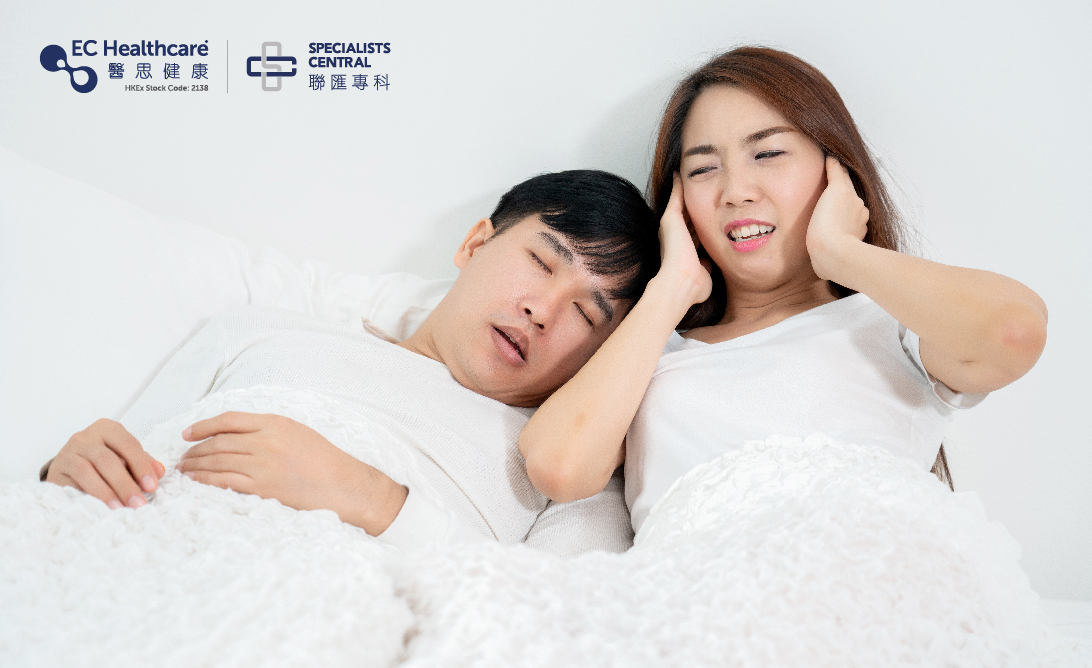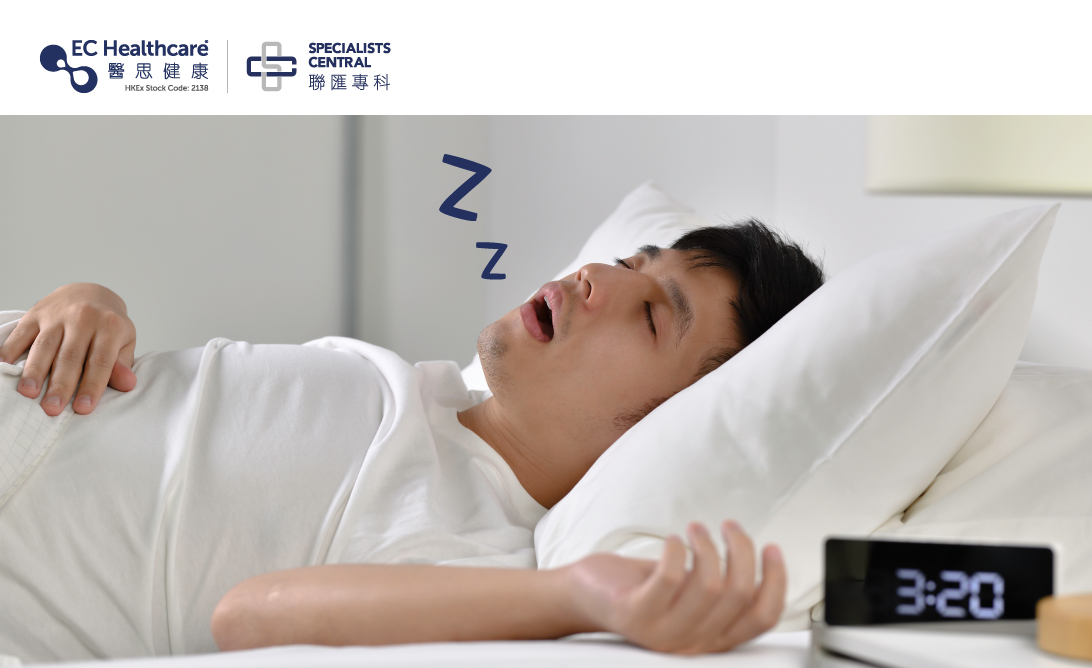Is Severe Snoring a Sign of Sleep Apnoea?


Over 100,000 Hong Kongers are suffering from sleep apnoea of varying degrees. Patients experience blockage by muscles in their respiratory tract in their sleep, which stops their breathing and leads to temporary oxygen deficiency. It wakes them up to resume breathing, and then they fall asleep again. This can happen hundreds of times every night, each lasting for 10 seconds to a few minutes. The recurrent awakenings affect patients’ sleep quality and cause fatigue and drowsiness during the day, interfering with daily life and work.
There are 3 types of sleep apnoea:
> Obstructive sleep apnoea
90% of the patients suffer from this type of sleep apnoea. Their breathing pauses are caused by narrowing or blockage of the respiratory tract. The multifaceted condition can be caused by enlarged turbinates or tonsils, severe allergic rhinitis, uvula or tongue blocking the airway, etc.
> Central sleep apnoea
The central nervous system cannot send proper signals to the muscles that control breathing, leading to sleep apnoea. Patients with heart diseases, brain injuries or stroke are at higher risk of central sleep apnoea.
> Complex sleep apnoea
Patients suffer from both types of sleep apnoea.
Symptoms of Sleep Apnoea
If you experience two of the following symptoms, you may be suffering from sleep apnoea:
打鼻鼾
Snoring
When soft tissues in the upper respiratory tract relax during sleep, the respiratory tract will narrow, and snores will then form when breathing creates vibrations. The louder the snores, the more severe the blockage. Complete blockage of the respiratory tract will lead to asphyxia. That is why sleep apnoea patients usually experience severe snoring. If your snores can be heard outside the closed bedroom door, and are even loud enough to drown out the voices of others like thunder, you are very likely to have sleep apnoea.
You may experience fatigue and drowsiness during the day since you cannot have a good night’s sleep. You may doze off whenever you have time, such as resting after lunch and watching a movie, and experience fatigue and snoring at the same time.
Memory loss
Sleep apnoea patients may suffer from temporary oxygen deprivation that damages the brain. American studies show that patients will suffer from a decline in memory and thinking skills when they age around 70, which is 10 years earlier than the situation of people with good sleep quality.
Breathing pauses
Many patients do not know they experience snoring and even breathing pauses during sleep. Therefore, partners or family members play an important role in noticing any abnormal signs including breathing pauses, coughing and gasping when you sleep.
High blood pressure
Obstructive sleep apnoea may lead to high blood pressure. When one stops breathing for a few seconds, his/her sympathetic nervous system will start to raise the blood pressure and release a stress hormone known as Catecholamines, which will increase blood pressure over time.
Sleep apnoea can affect everyone, but studies show that obese people (BMI of 35 or above) are a high-risk group. The excess weight on the oral cavity, tongue and neck will lead to the collapse of soft tissues, hence breathing problems and snoring. On the other hand, muscle tone of the soft palate, neck muscles, and so on decreases with age. People aged over 50 are therefore more vulnerable to obstructive sleep apnoea.
Related Brands



